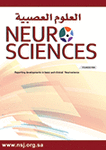Lifestyle and Environmental Factors in Multiple Sclerosis
- 1Institute of Environmental Medicine, Karolinska Institutet, Stockholm, Sweden; and Centre for Occupation and Environmental Medicine, Stockholm County Council, Stockholm 17177, Sweden
- 2Neuroimmunology Unit, Center for Molecular Medicine, Karolinska Hospital, Solna, 17176 Stockholm, Sweden
- Correspondence: tomas.olsson{at}ki.se
Abstract
Lifestyle and environmental factors potently influence the risk of multiple sclerosis (MS), because genetic predisposition only explains a fraction of the risk increase. There is strong evidence for associations of Epstein–Barr virus (EBV) infection, smoking, sun exposure/vitamin D, and adolescent obesity to risk of MS. There is also circumstantial evidence on organic solvents and shift work, all associate with greater risk, although certain factors like nicotine, alcohol, and a high coffee consumption associate with a reduced risk. Certain factors, smoking, EBV infection, and obesity interact with human leukocyte antigen (HLA) risk genes, arguing for a pathogenic pathway involving adaptive immunity. There is a potential for prevention, in particular for people at greater risk such as relatives of individuals with MS. All of the described factors for MS may influence adaptive and/or innate immunity, as has been argued for MS risk gene variants.










